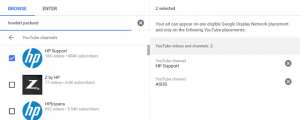Plus, Talkwalker acquires Reviewbox.
MarTech’s daily brief features daily insights, news, tips, and essential bits of wisdom for today’s digital marketer. If you would like to read this before the rest of the internet does, sign up here to get it delivered to your inbox daily.
Good morning, Marketers, and how are your customers trying to “hack” your products and services?
I’m not talking about digital piracy, although that’s certainly a task for the cyber security team at your organization.
Instead, I’m talking about consumers who are so devoted to your brand that they invent new ways to order a la “food hacks.” Just one more way that the fragmented digital landscape is also melting into itself, with brand buzz on social media merging with user-generated product reviews and e-commerce.
Here’s my hack. So, pumpkin is back at some of the breakfast chains, and I haven’t been able to buy a pound of ground pumpkin-flavored coffee in years, even though I love brewing it at home. Instead, I bought regular ground coffee and brewed it, and drank it with a sweet pumpkin muffin. Not the same, but not terrible.
Chris Wood,
Editor
A roadmap for navigating privacy’s choppy waters
Marketers and advertisers are facing choppy waters at the confluence of two powerful currents: a vigorous new era of consumer data privacy, rolling into “data-driven everything” practices like personalization and programmatic advertising — both now turbo-charged by artificial intelligence and machine learning.
According to the Real Story Group’s Sarah Brown, the increasing pace of privacy legislation, privacy-protecting tools and advocacy, and the market-shaking actions by Apple and Google to limit cross-device and cross-site tracking have left all parties scrambling for secure footing. Vendors vie for position with new and updated solutions and alliances in a race for adoption — even as the course continues to shift.
With everything in flux, as a marketing leader you might be tempted to crawl under your desk and wait for the dust to settle. Where to begin? Indeed, how to begin when everything is so fluid?
When faced with a chaotic and unsettled situation, a good place to start is with an organizing framework to categorize and understand the issues, dynamics, challenges, and opportunities in such a way that you can take action.
Talkwalker boosts UGC offering with Reviewbox deal
Consumer intelligence company Talkwalker has acquired review management platform Reviewbox, expanding its capabilities to integrate e-commerce and user-generated content data with its extensive customer insights offerings. The company serves over 2,500 brands, including Delta and Whirlpool.
A key addition to Talkwalker’s social and customer data is Reviewbox’s product data, which is gathered from sites like Amazon, Walmart and eBay. As we’ve recently found, user-generated content and product reviews are up since the start of the pandemic and a key source of insights and exposure for many brands.
“Reviews give you an understanding of just what your customers think of your products, whether that’s good or bad,” newly hired CEO Tod Nielsen said in a statement. “This integration gives you a real-time view of this data, enabling you to react, and also helping you shape your products for the future.”
Why we care. For marketers, the increasingly fragmented media landscape requires a great deal of data gathering across all digital channels. This deal combines two key areas for brand safety, marketing intelligence and customer insights: social media and product reviews. This becomes even more critical with e-commerce’s rise
Customers are going to post about your company where they are, not in a place that’s necessarily most convenient for the brand. These customers who are thinking about your brand and sharing their experiences are highly engaged and worth your attention. If a marketing team isn’t using a platform to bring together all of this data at scale, they are leaving behind insights, and, ultimately, potential sales.
Google changes for titles test power dynamics for marketers
Google has essentially said that SEOs (or those attempting SEO) have not always used page titles how they should be for a while (since 2012). “Title tags can sometimes be very long or ‘stuffed’ with keywords because creators mistakenly think adding a bunch of words will increase the chances that a page will rank better,” according to the Search Central blog. Or, in the opposite case, the title tag hasn’t been optimized at all: “Home pages might simply be called ‘Home’. In other cases, all pages in a site might be called ‘Untitled’ or simply have the name of the site.” And so the change is “designed to produce more readable and accessible titles for pages.”
This title tag system change seems to be another one of those that maybe worked fine in a lab, but is not performing well in the wild. The intention was to help searchers better understand what a page or site is about from the title, but many examples we’ve seen have shown the exact opposite.
The power dynamic is heavily weighted to Google’s side, and they know it. But the key is to remember that we’re not completely powerless in this relationship. Google’s search engine, as a business, relies on us (in both SEO and PPC) participating in its business model.
Quote of the day
“Marketers, you’re shooting yourselves in the foot by keeping your brand and demand gen teams so separate all the time. They might be different functions in your eyes, but it’s absolutely critical that they’re integrated and balanced.” Amber Naslund, author, former SVP of Marketing for Sysomos
The post Where to begin with privacy: Friday’s daily brief appeared first on MarTech.
MarTech(36)
Report Post






